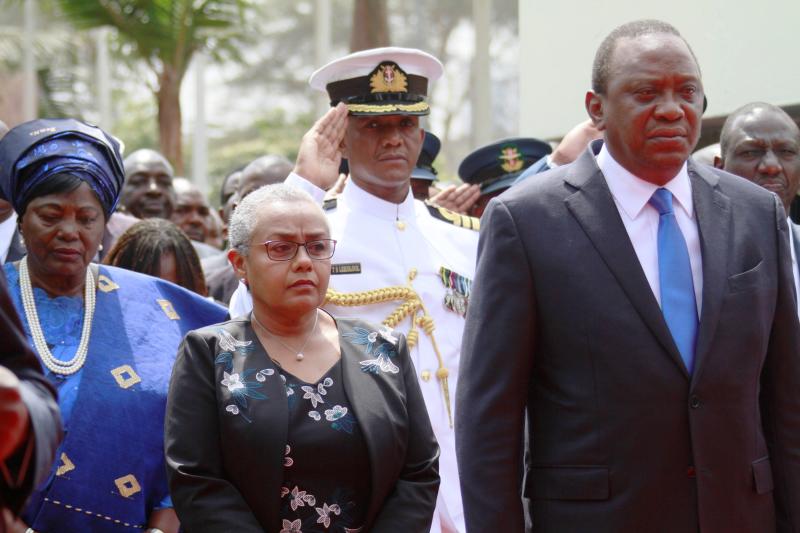
President Uhuru Kenyatta with his First Lady Margaret and Mama Ngina Kenyatta (L) stand for the National Anthem when he arrived for the Memorial of his father the Late Jomo Kenyatta at his Mausoleum in Nairobi in 2018. [Boniface Okendo, Standard]
The world over, motherhood is revered. It is held in such high esteem that reference is made to it in many instances. A patriot refers to the motherland. Mother earth is the source of all living beings and natural features. Alumni of a beloved school call it their alma mater, translated as “a kind and nourishing mother.”